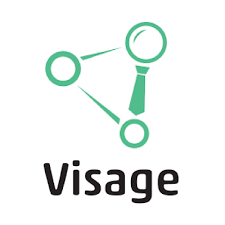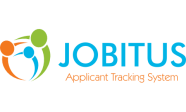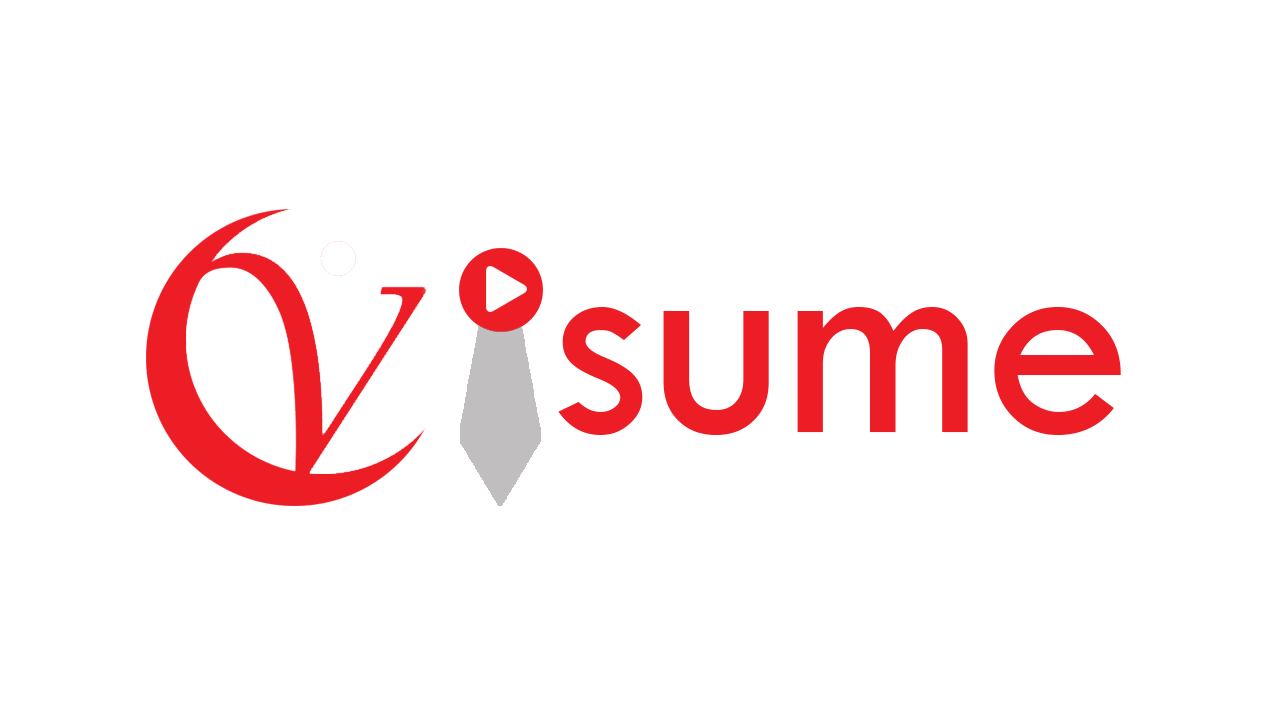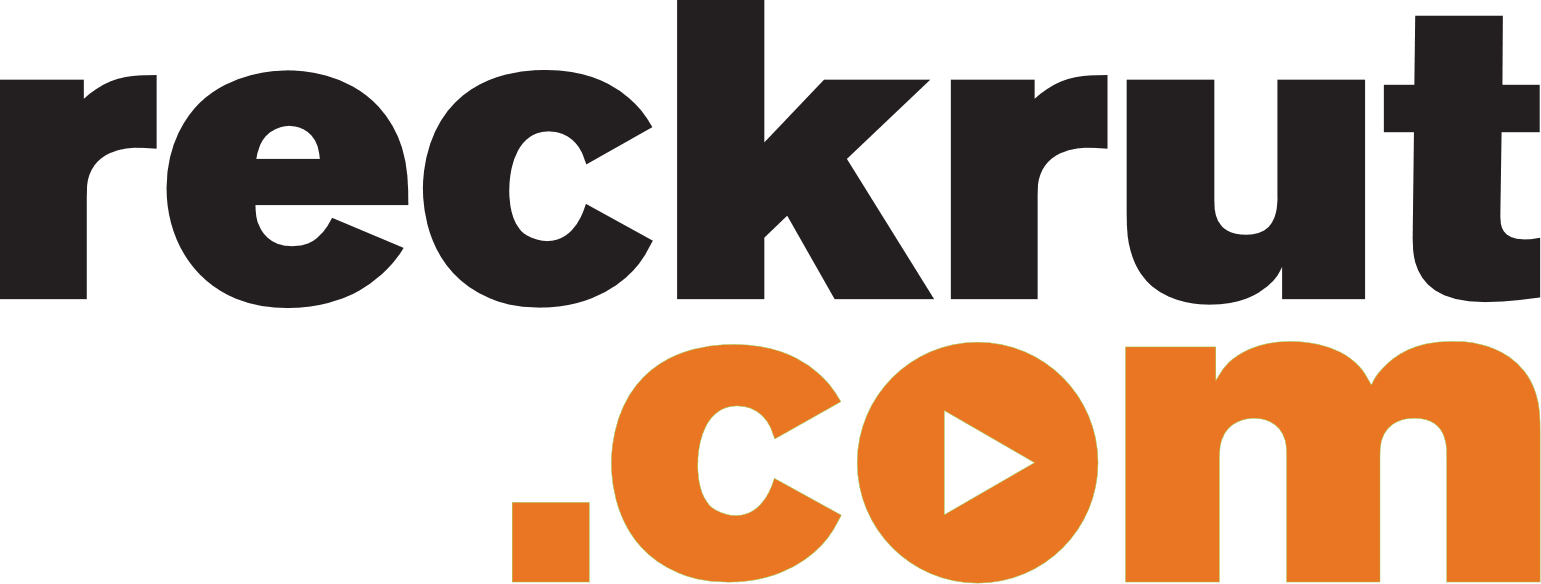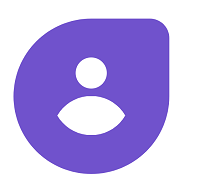What Is Recruiting Software?
Recruiting software is a technology that aims to simplify and streamline the entire recruitment process. It uses technology to help firms handle the many stages of recruiting, such as job advertisements and candidate sourcing, as well as interview scheduling and onboarding. Recruiting software is fundamentally a centralized platform that allows recruiters and hiring managers to track and manage applications while also collaborating on hiring decisions.
It enables teams to make job postings, distribute them to multiple job boards and social media platforms, and monitor the success of their recruitment efforts. One of the most important functions of recruitment software is applicant tracking, which allows firms to receive, organize, and assess candidates' applications in one location. This not only saves time and effort, but also reduces the possibility of losing important applicant information.
Furthermore, recruiting software provides capabilities for applicant sourcing, such as resume processing and keyword matching, to assist in finding the best individuals for certain job positions. It also supports online tests, background checks, and video interviews to efficiently screen applicants. Recruiting software also includes comprehensive analytics and reporting capabilities, which provide significant insights into the efficiency and success of the recruitment process.
Businesses can use this data to identify possible bottlenecks or areas for improvement in their hiring process. Overall, investing in trustworthy recruiting software can greatly improve an organization's recruitment efforts, resulting in higher candidate quality, shorter time-to-hire, and a beneficial influence on the company's bottom line. As a result, it is an excellent choice for firms trying to streamline their hiring process and attract top personnel.
What Are The Recent Trends In Recruiting Software?
Recruiting has changed dramatically in recent years, with technology playing a critical part in expediting the process. As a result, recruiting software has become an indispensable tool for businesses of all kinds in attracting, identifying, and hiring the best personnel. With developments in recruiting technologies, there has been a shift toward more data-driven, efficient, and tailored recruiting strategies.
Let's explore, we'll look at the latest trends in recruiting tools that are changing the way businesses find and hire top people.
1. AI And Machine Learning (ML): AI and ML have transformed recruiting by automating many of the time-consuming procedures associated with the hiring process. These tools can evaluate resumes, identify outstanding applicants, and even do initial screenings, saving recruiters a lot of time. AI and ML algorithms can also help enhance hiring quality by finding patterns in successful recruits and using that information to guide future hiring decisions.
2. Candidate Relationship Management (CRM): CRM has long been used in sales and marketing to manage client connections, but it has now found its way into recruitment. CRM software enables recruiters to establish and maintain contacts with potential candidates, even if they are not immediately qualified for a position. This enables recruiters to build a pipeline of suitable candidates for future job openings, lowering the time and expense of filling positions.
3. Mobile Recruitment: With the increased use of mobile devices, it's no wonder that mobile recruiting has emerged as a big business trend. Mobile recruiting enables candidates to search and apply for positions while on the go, making it more convenient for job searchers and expanding the reach of enterprises. Mobile recruiting also connects with social media, making it easier for businesses to communicate with prospects and establish their employer brand.
4. Inclusion & Diversity: Diversity and inclusion have been increasingly important in the workplace in recent years. This has resulted in a rise in the usage of recruiting software, which enables firms to track and enhance their diversity initiatives. These tools can evaluate hiring data to discover biases in the recruitment process and recommend strategies for creating a more diverse and inclusive staff.
5. Video Interviews And Assessments: Video interviews and evaluations are becoming increasingly popular as firms seek to streamline the employment process and reduce the time and cost associated with in-person interviews. Recruiting software platforms now allow for video interviews and tests that may be tailored to individual tasks and provide significant insights into a candidate's abilities, experience, and personality.
Benefits Of Using Recruiting Software
Recruiting great employees is critical for any organization, but it can be a time-consuming and tiresome task. Recruiting software simplifies and automates the recruitment process, making it more efficient and effective.
Here are the main advantages of using recruitment software for your hiring needs:
1. Saves Time And Energy: The typical hiring process entails manually reviewing resumes, organizing interviews, and keeping track of candidates. With recruitment software, you can complete all of these chores with a few clicks, freeing up your time and energy to focus on other vital elements of your organization. In addition, most recruiting software includes capabilities like automatic interview scheduling and resume screening, which save time and effort on these duties.
2. Improves Communication: Maintaining contact with candidates during the recruitment process is critical to providing a great candidate experience. Recruiting software provides a consolidated communication platform, enabling you to send automated email updates and notifications to candidates, keeping them informed and interested.
3. Improves Collaboration: Recruiting software enables collaboration amongst team members participating in the hiring process. With tools like candidate sharing and scorecards, team members can readily analyze and discuss candidates, making the decision-making process more efficient and productive.
4. Provides Data And Insights: Recruiting software collects and analyzes recruiting data to provide useful insights into your hiring process. These insights can help you find areas for improvement, make data-driven decisions, and assess the success of your recruitment efforts.
5. Streamlines Onboarding Process: Once you've discovered the right applicant, you can use recruiting software to handle the onboarding process. You can transmit and track onboarding paperwork, gather e-signatures, and assign new hire assignments all from a single platform, making the onboarding process more efficient and structured.
6. Improves Candidate Quality: Recruiting software enables you to generate personalized job advertisements and disseminate them over numerous job boards, resulting in a larger pool of prospects. This can result in higher-quality candidates that are a better fit for your firm, ultimately saving you time and resources.
7. Cost-Effective: Hiring costs can quickly add up, especially if you use various products and platforms. Investing in recruiting software can save you money in the long run since it consolidates numerous hiring functions onto a single platform, minimizing the need for additional resources.
Important Factors To Consider While Purchasing Recruiting Software?
When choosing recruitment software, you must consider a number of variables to ensure that you are making an informed purchase. Recruiting software is intended to simplify and enhance the hiring process, making it easier for firms to attract and retain top personnel.
Let's explore, we will go over the key elements to consider before buying in recruiting software.
1. Budget: Before you start studying and evaluating different recruiting tools, you need first set your budget. Recruiting software can cost anything from a few hundred to thousands of dollars, depending on its features and capabilities. Setting a budget allows you to limit down your selections and select the best software that meets your financial requirements.
2. Key Characteristics: Before making a purchase, you should define the key characteristics that you require in your recruiting software. Consider your organization's specific needs and select software that includes capabilities like application tracking, resume processing, candidate sourcing, and automated job posting. It is also critical to understand what integrations and customization options are available to match your specific needs.
3. User-Friendliness: The usability of recruiting software is an important issue to consider. A confusing and clunky interface can reduce recruiting efficiency and create a steep learning curve for your HR team. Look for software with a simple and easy-to-use interface that requires little training.
4. Scalability: As your company expands, your recruitment requirements will vary. As a result, it is critical to select software that can grow alongside your firm. Look for systems that include add-ons and configurable features, allowing you to upgrade and enhance capability as your business grows.
5. Mobile Compatibility: In today's fast-paced environment, having access to recruitment tools while on the go is critical. Choose software that is mobile-friendly and provides a smooth experience across several devices. This allows you to stay up to date and manage your recruitment operations even while you're not in the office.
6. Customer Assistance: Effective customer assistance is essential for any software purchase, including recruiting software. Look for vendors who provide trustworthy customer service, whether by phone, email, or live chat.
A specialized support team can assist you with any issues or questions that may arise throughout your use of the product. Follow these guidelines to make an informed decision when selecting recruiting software. By taking into account your budget, important features, user-friendliness, scalability, mobile compatibility, and customer service, you can select a solution that suits your organization's specific recruitment requirements and enables you to efficiently attract and hire top personnel.
What Are The Key Features To Look For In Recruiting Software?
When selecting the best recruiting software for your organization, consider the following crucial features:
1. Applicant Tracking System (ATS): An ATS is one of the most important aspects to look for when selecting recruitment software. This program lets you track and manage every step of the hiring process, from advertising job positions to making job offers.
2. Candidate Sourcing And Screening: Look for software that includes capabilities like resume processing, job board integration, and candidate screening tools. These capabilities can save you time and effort by automatically selecting and identifying the best prospects.
3. Customizable Job Listings: A decent recruitment software should allow you to tailor job postings to your company's identity and job criteria. This might help you attract the best candidates and strengthen your employer brand.
4. Collaboration Tools: Look for software that enables collaboration among team members involved in the hiring process. This may contain elements such as candidate feedback forms, interview scheduling, and candidate sharing.
5. Communication And Engagement Tools: The program should include email and text messaging capabilities to facilitate effective communication with candidates. It may also include capabilities for engaging with passive prospects, such as talent pools or job notifications.
6. Reporting And Analytics: To assess the effectiveness of your hiring process, look for software that offers extensive reporting and analytics capabilities. This allows you to track parameters like time-to-hire, cost-per-hire, and source effectiveness.
7. Mobile accessibility: In today's fast-paced environment, it is critical to have recruiting software that is accessible via mobile devices. Recruiters and applicants may now keep connected and up to current while on the go.
8. Integration With HR Systems: If you currently have HR software, search for recruiting software that interfaces effortlessly. This can help to improve your HR operations and data management.
9. Scalability: As your company expands, your staffing requirements may also increase. As a result, it is critical to select software that can fit your future needs and scale quickly.
10. Customer Support: Finally, assess the level of customer service provided by the software vendor. Look for a vendor who provides fast and efficient support to address any issues that may develop while using the product.
Overall, keeping these crucial aspects in mind will allow you to make an informed decision about the finest recruitment software for your company.
Why Do Businesses Need Recruiting Software?
In today's competitive job market, firms must have strong and effective recruitment processes in place to attract top candidates. This is where recruiting software comes into play, as it streamlines the entire hiring process, from applicant sourcing and screening to onboarding. One of the primary reasons firms want recruiting software is to save time and streamline administrative duties.
With manual recruitment methods, HR managers can spend numerous hours sorting through resumes, scheduling interviews, and connecting with prospects. Recruiting software automates many of these procedures, freeing up important time to focus on other strategic projects. Another significant advantage of recruitment software is its potential to enhance the candidate experience.
With features like online applications and automated communication, prospects may easily apply for positions and receive updates on their application status, resulting in a more positive view of the organization. This, in turn, can help to attract top people and strengthen the employer brand. Recruiting software also enables firms to make data-driven decisions.
With extensive reporting and analytics tools, HR professionals can watch critical metrics like time-to-fill and cost-per-hire, allowing them to discover areas for improvement and make data-driven hiring decisions. Furthermore, recruiting software ensures that the recruitment process is consistent and fair. Businesses can limit the danger of unconscious bias by utilizing predefined criteria and structured interviews to ensure fair hiring decisions based on skills and qualifications.
How Much Time Is Required To Implement Recruiting Software?
The time required to adopt recruitment software is determined by a number of factors, including your organization's size, the complexity of your hiring processes, and the software's capabilities and customization choices. In general, completely integrating recruiting tools into your hiring strategy can take several weeks to months. First and foremost, it is critical to understand that implementing recruiting software is a continuous process.
You will need to set aside time for initial setup, user training, data migration, and ongoing updates and maintenance. Initial setup often entails tailoring the program to your organization's specific requirements and practices. This can include establishing job templates, developing custom workflows, and customizing user permissions. Depending on the intricacy of your hiring processes, this could take a few days to a few weeks.
User training is a critical component in implementing recruiting software. To ensure the software's success, your team must learn how to use it properly. Training can be done in person, via webinars, or through online tutorials, and can last anywhere from a few hours to a few weeks, depending on the size of your staff and their knowledge with similar software. Data migration is the process of transferring existing applicant and staff information to a new software.
This can take anything from a few days to a few weeks, depending on how much data is involved and how compatible the systems are. In addition to the initial stages, continuing upgrades and maintenance should be considered. As your business and hiring needs change, you may need to make adjustments and updates to the software to ensure that it meets your requirements.
This can vary from a few hours to a few days per month. Overall, it is critical to devote sufficient time and resources to the successful installation of recruiting software. This may necessitate some changes to your hiring processes and procedures, but the long-term benefits and time-saving possibilities of well-implemented recruiting software justify the initial investment.
What Is The Level Of Customization Available In Recruiting Software?
Recruiting software is designed to streamline the hiring process by automating tasks and increasing overall recruitment efficiency. One important element of this sort of software is its capacity to be tailored to the individual requirements and preferences of various businesses and industries. In actuality, the level of flexibility offered by recruiting software varies substantially depending on the vendor and the product.
At its most basic, recruiting software enables users to personalize job listings by specifying job requirements, credentials, and candidate preferences. This enables for a more tailored approach to recruitment, which can help attract the best people for the position. However, the level of customization doesn't end there. Some recruiting software provides for additional customization by providing different templates for job descriptions and interview questions.
This can save recruiting managers time and effort when posting job openings and conducting interviews. In addition, some software supports custom branding, allowing businesses to keep a consistent corporate image throughout the recruitment process. Another level of flexibility offered by recruiting software is the option to interact with other HR systems and tools.
This means that organizations may link their recruiting software to their applicant tracking systems, onboarding software, and even background check services. This not only enhances the overall efficiency of the hiring process, but it also enables the seamless transfer of data between different platforms. Furthermore, some recruiting software vendors allow firms to design unique procedures and processes to meet their specific hiring requirements.
This can entail establishing certain stages of the recruitment process, modifying email templates, and even developing unique statistics and analytics. When contemplating acquiring recruiting software, it is critical to thoroughly assess the level of customization offered and determine whether it meets your company's specific needs and objectives.
The more adaptable the software, the more it can be adjusted to your company's specific needs, resulting in a more efficient and productive hiring process.
Which Industries Can Benefit The Most From Recruiting Software?
Recruiting software has become an indispensable tool for organizations of all sizes, streamlining and improving their hiring procedures. Certain industries, on the other hand, can benefit the most from recruiting software due to the particular obstacles they confront in locating and selecting top people.
We'll look at which industries can gain the most from adopting recruitment software.
1. Technology: In the fast-paced and extremely competitive world of technology, businesses must constantly attract and retain top people. With the ever-changing labor market and the demand for specialized talents, recruiting software can be a great asset for technology organizations. It can help to automate the sourcing and screening procedures, reducing time and enhancing hiring quality.
2. Healthcare: The healthcare industry is infamous for its difficult recruitment processes and high turnover rates. Healthcare firms, ranging from huge institutions to private offices, can tremendously benefit from recruitment software. It can help to streamline compliance and credentialing processes, increase applicant communication, and give superior candidate data for informed decision-making.
3. Retail: The retail industry has a much greater turnover rate than other industries. This makes the hiring and training process time-consuming and expensive. Using recruiting software, retail organizations can speed up the hiring process, gain access to a bigger pool of prospects, and enhance their overall hiring success rate.
4. Finance: The finance business is extremely competitive, and top finance professionals are in high demand. To attract and retain top personnel, financial institutions must have efficient recruitment processes. Recruiting software enables finance organizations to automate job posts, candidate screening, and interview scheduling, making the hiring process more efficient and effective.
5. Education: Hiring at educational institutions, from K-12 schools to colleges, presents particular obstacles. They must screen for certain credentials and certifications, and their recruiting requirements may vary according to the academic calendar. Recruiting software can assist educational institutions improve their hiring procedures, keep track of candidate qualifications, and speed up the onboarding of new employees.
Overall, regardless of the market you operate in, recruiting software can provide several advantages in terms of time and cost savings, enhanced candidate quality, and higher hiring success rates. When choosing a recruiting program, keep your industry's unique needs and obstacles in mind, and make sure it offers capabilities that meet your specific requirements.
Conclusion
To summarize, selecting the correct recruiting software is critical for optimizing your hiring process and identifying the top applicants for your firm. With so many options available, it is critical to examine your specific requirements, budget, and preferred features. Before making a final decision, extensively investigate and demo various software options to guarantee they match your needs.
Additionally, consider the software's scalability and integration capabilities, as well as the amount of customer assistance supplied. Look for a platform with adjustable choices to meet your specific hiring process and a user-friendly interface for both recruiters and prospects. Don't forget about the software provider's reputation and track record, as well as any data security measures in place.
You want to be confident and secure in your choice of software and the sensitive data it will manage. Finally, the correct recruiting software can help you save time, money, and energy by attracting, evaluating, and hiring outstanding personnel for your company. This buyer's guide can help you make an informed decision and give your hiring process a boost.



